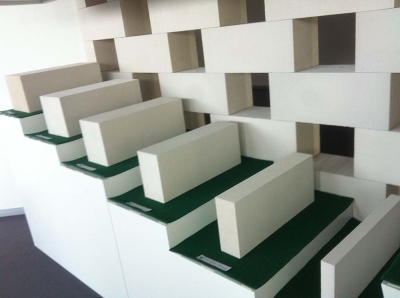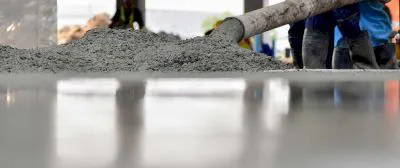Concrete blocks trade in Turkey - Exporting Concrete blocks to Turkey
- Anbar Asia
- Trade with Turkey
- Turkey's Construction Materials market
- Concrete blocks trade in Turkey
- Turkey
 ProfileMeteorite
ProfileMeteorite - Turkey
 ProfileTravertine
ProfileTravertine - Turkey
 ProfileGold, Steel
ProfileGold, Steel - Turkey
 ProfilePainting, Handicrafts
ProfilePainting, Handicrafts - Turkey
 ProfileMeteorite, Ceramic Tile, Apartment, Garden, Shops And Stores, Villa
ProfileMeteorite, Ceramic Tile, Apartment, Garden, Shops And Stores, Villa - Turkey
 ProfileFossil, Antique
ProfileFossil, Antique - Turkey
 ProfileMeteorite
ProfileMeteorite - Turkey
 ProfileDiamond, Meteorite, Tanzanite
ProfileDiamond, Meteorite, Tanzanite - Turkey
 ProfileMeteorite
ProfileMeteorite - Turkey
 ProfileMeteorite
ProfileMeteorite - Turkey
 ProfileGroceries, Snacks
ProfileGroceries, Snacks - Turkey
 ProfileMeteorite
ProfileMeteorite - Turkey
 ProfileDiamond
ProfileDiamond - Turkey
 ProfileFossil
ProfileFossil - Turkey
 ProfileCement
ProfileCement - Turkey
 ProfileCement, Nuts
ProfileCement, Nuts - Turkey
 ProfileMeteorite
ProfileMeteorite - Turkey
 ProfileMeteorite
ProfileMeteorite - Turkey
 ProfileAcrylonitrile Butadiene Styrene
ProfileAcrylonitrile Butadiene Styrene - Turkey
 ProfileTurquoise, Ruby, Agate, Diamond, Lapis Lazuli, Amber, Topaz, Emerald, Jade, Charoite, Spinel, Chrysocolla, Pearl, Meteorite, Tanzanite, Fossil, Cement, Plaster, Sand, Clay, Ceramic Tile, Brick, Wood And Timber, Glass, Lime, Paint, Concrete Blocks, Rebar And Beam, Meat, Groceries, Jam And Honey, Dairy, Canned Foods, Snacks, Drinks, Tea And Coffee, Nuts, Spices, Pickles, Herbal Distillate, Bread And Pastry
ProfileTurquoise, Ruby, Agate, Diamond, Lapis Lazuli, Amber, Topaz, Emerald, Jade, Charoite, Spinel, Chrysocolla, Pearl, Meteorite, Tanzanite, Fossil, Cement, Plaster, Sand, Clay, Ceramic Tile, Brick, Wood And Timber, Glass, Lime, Paint, Concrete Blocks, Rebar And Beam, Meat, Groceries, Jam And Honey, Dairy, Canned Foods, Snacks, Drinks, Tea And Coffee, Nuts, Spices, Pickles, Herbal Distillate, Bread And Pastry - Turkey
 ProfileMarble, Sandstone, Cement, Plaster, Sand, Ceramic Tile, Brick, Wood And Timber, Lime, Paint, Concrete Blocks, Rebar And Beam, Groceries, Jam And Honey, Dairy, Canned Foods, Snacks, Drinks, Tea And Coffee, Nuts, Spices, Pickles, Herbal Distillate, Bread And Pastry
ProfileMarble, Sandstone, Cement, Plaster, Sand, Ceramic Tile, Brick, Wood And Timber, Lime, Paint, Concrete Blocks, Rebar And Beam, Groceries, Jam And Honey, Dairy, Canned Foods, Snacks, Drinks, Tea And Coffee, Nuts, Spices, Pickles, Herbal Distillate, Bread And Pastry - Turkey
 ProfileMeteorite
ProfileMeteorite - Turkey
 ProfileCement, Plaster, Sand, Ceramic Tile, Brick, Lime, Paint, Concrete Blocks, Rebar And Beam, Steel, Aluminum, Canned Foods, Nuts, Spices
ProfileCement, Plaster, Sand, Ceramic Tile, Brick, Lime, Paint, Concrete Blocks, Rebar And Beam, Steel, Aluminum, Canned Foods, Nuts, Spices - Turkey
 ProfileMeteorite
ProfileMeteorite - Turkey
 ProfilePolypropylene, Styrene Butadiene Rubber, Acrylonitrile Butadiene Styrene
ProfilePolypropylene, Styrene Butadiene Rubber, Acrylonitrile Butadiene Styrene - Turkey
 ProfileMeteorite
ProfileMeteorite - Turkey
 ProfileMeteorite
ProfileMeteorite - Turkey
 ProfileMeteorite
ProfileMeteorite - Turkey
 ProfileMeteorite
ProfileMeteorite - Turkey
 ProfileAgate, Diamond, Topaz, Emerald, Tanzanite
ProfileAgate, Diamond, Topaz, Emerald, Tanzanite



 Yasin taş2 weeks ago
Yasin taş2 weeks ago ProfileMeteorite
ProfileMeteorite Kadir altaş2 weeks ago
Kadir altaş2 weeks ago ProfileTravertine
ProfileTravertine Ahmet Ebu Halıl2 weeks ago
Ahmet Ebu Halıl2 weeks ago ProfileGold, Steel
ProfileGold, Steel Bitas yatak baza uyku sistemleri3 weeks ago
Bitas yatak baza uyku sistemleri3 weeks ago ProfilePainting, Handicrafts
ProfilePainting, Handicrafts fikri3 weeks ago
fikri3 weeks ago ProfileMeteorite, Ceramic Tile, Apartment, Garden, Shops And Stores, Villa
ProfileMeteorite, Ceramic Tile, Apartment, Garden, Shops And Stores, Villa halil3 weeks ago
halil3 weeks ago ProfileFossil, Antique
ProfileFossil, Antique Ekrem1 months ago
Ekrem1 months ago ProfileMeteorite
ProfileMeteorite خليل العلي1 months ago
خليل العلي1 months ago ProfileDiamond, Meteorite, Tanzanite
ProfileDiamond, Meteorite, Tanzanite Savas1 months ago
Savas1 months ago ProfileMeteorite
ProfileMeteorite Bayram aydın1 months ago
Bayram aydın1 months ago ProfileMeteorite
ProfileMeteorite ozeksi1 months ago
ozeksi1 months ago ProfileGroceries, Snacks
ProfileGroceries, Snacks atilla altın2 months ago
atilla altın2 months ago ProfileMeteorite
ProfileMeteorite TUNCAY2 months ago
TUNCAY2 months ago ProfileDiamond
ProfileDiamond Murat Çetinkaya2 months ago
Murat Çetinkaya2 months ago ProfileFossil
ProfileFossil Hasan2 months ago
Hasan2 months ago ProfileCement
ProfileCement Halit Kurt2 months ago
Halit Kurt2 months ago ProfileCement, Nuts
ProfileCement, Nuts Salim turkiye2 months ago
Salim turkiye2 months ago ProfileMeteorite
ProfileMeteorite Salih2 months ago
Salih2 months ago ProfileMeteorite
ProfileMeteorite Hassas Plastik San ve Tic. A.Ş. Bursa Turkey2 months ago
Hassas Plastik San ve Tic. A.Ş. Bursa Turkey2 months ago ProfileAcrylonitrile Butadiene Styrene
ProfileAcrylonitrile Butadiene Styrene نور الدين اقرع2 months ago
نور الدين اقرع2 months ago ProfileTurquoise, Ruby, Agate, Diamond, Lapis Lazuli, Amber, Topaz, Emerald, Jade, Charoite, Spinel, Chrysocolla, Pearl, Meteorite, Tanzanite, Fossil, Cement, Plaster, Sand, Clay, Ceramic Tile, Brick, Wood And Timber, Glass, Lime, Paint, Concrete Blocks, Rebar And Beam, Meat, Groceries, Jam And Honey, Dairy, Canned Foods, Snacks, Drinks, Tea And Coffee, Nuts, Spices, Pickles, Herbal Distillate, Bread And Pastry
ProfileTurquoise, Ruby, Agate, Diamond, Lapis Lazuli, Amber, Topaz, Emerald, Jade, Charoite, Spinel, Chrysocolla, Pearl, Meteorite, Tanzanite, Fossil, Cement, Plaster, Sand, Clay, Ceramic Tile, Brick, Wood And Timber, Glass, Lime, Paint, Concrete Blocks, Rebar And Beam, Meat, Groceries, Jam And Honey, Dairy, Canned Foods, Snacks, Drinks, Tea And Coffee, Nuts, Spices, Pickles, Herbal Distillate, Bread And Pastry Cihan ticaret2 months ago
Cihan ticaret2 months ago ProfileMarble, Sandstone, Cement, Plaster, Sand, Ceramic Tile, Brick, Wood And Timber, Lime, Paint, Concrete Blocks, Rebar And Beam, Groceries, Jam And Honey, Dairy, Canned Foods, Snacks, Drinks, Tea And Coffee, Nuts, Spices, Pickles, Herbal Distillate, Bread And Pastry
ProfileMarble, Sandstone, Cement, Plaster, Sand, Ceramic Tile, Brick, Wood And Timber, Lime, Paint, Concrete Blocks, Rebar And Beam, Groceries, Jam And Honey, Dairy, Canned Foods, Snacks, Drinks, Tea And Coffee, Nuts, Spices, Pickles, Herbal Distillate, Bread And Pastry Mehmet kılıç2 months ago
Mehmet kılıç2 months ago ProfileMeteorite
ProfileMeteorite ALTINHAT DIŞ TİCARET3 months ago
ALTINHAT DIŞ TİCARET3 months ago ProfileCement, Plaster, Sand, Ceramic Tile, Brick, Lime, Paint, Concrete Blocks, Rebar And Beam, Steel, Aluminum, Canned Foods, Nuts, Spices
ProfileCement, Plaster, Sand, Ceramic Tile, Brick, Lime, Paint, Concrete Blocks, Rebar And Beam, Steel, Aluminum, Canned Foods, Nuts, Spices Serkan3 months ago
Serkan3 months ago ProfileMeteorite
ProfileMeteorite پترو کیمیا الفا3 months ago
پترو کیمیا الفا3 months ago ProfilePolypropylene, Styrene Butadiene Rubber, Acrylonitrile Butadiene Styrene
ProfilePolypropylene, Styrene Butadiene Rubber, Acrylonitrile Butadiene Styrene İbrahim Güven3 months ago
İbrahim Güven3 months ago ProfileMeteorite
ProfileMeteorite Yusuf3 months ago
Yusuf3 months ago ProfileMeteorite
ProfileMeteorite Canan karatay3 months ago
Canan karatay3 months ago ProfileMeteorite
ProfileMeteorite Mahmut3 months ago
Mahmut3 months ago ProfileMeteorite
ProfileMeteorite خامات افريقيا3 months ago
خامات افريقيا3 months ago ProfileAgate, Diamond, Topaz, Emerald, Tanzanite
ProfileAgate, Diamond, Topaz, Emerald, Tanzanite






















